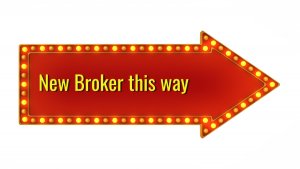Anyone that has researched Forex brokers online has probably noticed that the potential choices seem almost limitless. In today’s world, online trading has become more of a phenomenon and those numbers increase daily. Many are legitimate options with good benefits, while others may be scammers. So, how does a beginner, or even an intermediate trader determine which is which? Our detailed guide will help traders to decipher the difference between a great option and a costly mistake. This guide will cover the following sections:
- Regulation
- Account Types
- Minimum Deposit
- Trading Platforms
- Leverage
- Available Assets
- Fees
- Spreads
- Funding Methods
- Demo Accounts
- Bonuses and/or Promotional Opportunities
- Customer Service
Regulation
Many of the most legitimate brokers out there are regulated by major authorities, like the Securities and Exchange Commission (SEC), the Financial Conduct Authority, or another regulatory body. Companies need to deal with strict rules & regulations when regulated with a certain authority, so this is a good sign that things are on the up and up. However, we do want to point out that US residents may need to lower their standards somewhat when it comes to regulations. The United States imposes strict regulation laws, meaning that there are fewer options out there for those clients, so using an unregulated, but highly regarded brokerage will suffice.
- When looking at a potential broker, be sure to check towards the bottom of their website for information related to their regulation.
- It’s a good idea to use Google to be sure that the supposed regulatory authority is legit.
Account Types
Some brokers cater more towards clients that can make a larger deposit by offering more benefits and special perks. For example, fee-free withdrawals may only be offered to certain accounts that require large deposits. If you plan on making a significant deposit, then one of these brokers could be the best option, since you’ll get to take advantage of the extra perks. On the other hand, beginners that don’t have a big deposit will do better with brokers that offer Mini/Micro/Cent/Standard accounts without penalties like insane spreads.
Minimum Deposit
How much money do you have or want to invest? The answer will differ for everyone, as some may only want to start with $100 or less, while others may have thousands to deposit. Many brokers out there will allow traders to start with a deposit of just $5 USD or less, which allows traders to test the waters before making a larger deposit. Others ask for a larger amount to start with – $100 is about average for a standard account type. Better accounts, like Premium/Platinum, etc., usually ask for $1,000 or more. VIP accounts are often more expensive than that. However, you should note that Micro/Mini/Cent accounts should lean towards $100 or less. Any broker that asks for $500+ for one of these account types is taking advantage of entry-level traders.
- Note that any broker’s minimum deposit requirements should be advertised clearly on their website.
- Try checking out the ‘Account Types’ page on the broker’s website for the minimum deposit list if there is more than one account offered. Any broker that isn’t transparent about this is probably trying to trick you into making a hefty deposit.
Trading Platforms
MetaTrader 4 (MT4) and MetaTrader 5 (MT5) are the most popular and most commonly available trading platforms out there. Most brokers offer one or both, but some only provide less attractive trading platforms.
- If MT4/MT5 is not available, then be sure to research the available platform(s) to be sure that it is a decent option.
Leverage
This one really comes down to personal preference. Some regulators restrict leverage to 1:30, while a few brokerages offer insanely high leverage of up to 1:1000. Higher leverage increases risks, but it can pay off with higher returns. Professionals tend to prefer a leverage of 1:100, while beginners should probably stick with this option (or lower). This comes down to personal preference, although it is always nice to have a little room for growth.
Available Assets
For this category, you’ll need to ask yourself what you’re interested in trading. Are you happy with a selection of basic currency pairs, or are you looking for something more exotic? Do you want to trade commodities like agricultural options, metals, stocks, bonds, oil, cryptocurrency, etc.? Each broker will offer a different selection of assets. The most basic options would include around 36+ currency pairs, along with the metals Gold and Silver. Others may offer hundreds of options in different categories. Once again, this comes down to personal preference, as extra options don’t matter if you don’t plan on using them.
Fees
There are several fees that may be charged by any given broker:
- Deposit/withdrawal fees
- Fees for making a withdrawal with no trading activity
- Commission fees
- Miscellaneous fees, like inactivity charges or account maintenance fees
Many brokers offer fee-free deposits and withdrawals or have low withdrawal fees without charging miscellaneous fees. Others tack on extra charges at every turn, so be sure to check on this. Also, commission fees will vary, or may not be charged at all. This usually differs based on one’s account type and the associated spreads. Lower spreads typically result in higher commission fees to balance things out so costs will need to be compared.
Spreads
Spread, or the difference between the selling and the asking price is a typical charge that is one of the main ways that Forex brokers make a profit. Traders really need to be careful when selecting a broker and account type, as some offer outrageous spreads. The industry average is about 1.5 pips on the pair EURUSD – anything better than this is a good option, while anything higher than 2 pips is not attractive. Be sure to compare a few options based on your starting deposit to get the best deal.
- Remember that lower commission fees may result in higher spreads, so be sure to check both if spreads do seem high. If both are high, look for another broker.
- Don’t be surprised if spreads on other instruments are slightly higher. The EURUSD pair usually has the lowest spread available. Spreads on metals, exotics, and other assets will vary more significantly.
Funding Methods
The most traditional method for funding a brokerage account would be bank wire, however, the method has become somewhat outdated, making cards the preferred method for many traders. Others have moved on to e-wallets or cryptocurrency. Each broker will only allow certain funding methods, so you’ll want to review those to be sure that one is available that works for you. Different funding methods have specific advantages. For example, bank wire is more secure, while cards usually allow for instant deposits. Fees also play a significant role here.
Demo Accounts
Most Forex brokers offer risk-free demo accounts. These accounts simulate the live trading environment and allow traders to practice using a virtual deposit. Some added benefits include the ability to check out the broker’s conditions (like spreads and commissions) in an environment that mimics a live account. If your potential broker doesn’t offer these, then it could be a bad sign.
- If you’re interested in any broker that doesn’t offer demo accounts, try researching user-reviews online to be sure that they are trustworthy.
Bonuses and/or Promotional Opportunities
This category is more like an extra perk, not something that should be on your absolute must-have list. Bonuses are usually related to deposits, for example, a 50% deposit bonus added to a $100 USD deposit would equal $150 in one’s trading account. Promotions tend to revolve around Refer-A-Friend programs, loyalty-based rewards, contests, and “free” items that are typically earned by reaching a certain trading volume. Having the option to earn extra money is always a perk, so be sure to check to see if any potential broker has these available.
- Be sure to read the terms & conditions for any available bonus or promotion to ensure that the reward is actually obtainable.
Customer Service
You’ll want to be able to contact support quickly should you run into a funding issue, have a problem with a trade or your account, or for any other reason. For these reasons, many brokers offer LiveChat as an instant contact option directly from their website. Smaller brokerages sometimes limit support to phone calls and/or email, and you won’t find direct phone numbers listed on every broker’s website. Contact hours also differ, with some brokers being open 24/7 and others operating on more limited 9-5 weekday hours. The availability of customer support can also give you an idea of how long withdrawal processing may take with a specific broker.
Conclusion
We’ve covered a lot of facts in this article. Here’s the quicker, more condensed version:
- Check the regulation status or conduct research to be sure that the broker is legitimate
- Look at available account types to be sure a reasonable one is available for your planned deposit amount.
- Check to see if available leverage options will work for you. A choice of 1:100 and up is ideal.
- Visit the ‘Products’ page on any broker’s website to check available assets. If one isn’t available, ask for support or look elsewhere on the site.
- Check for associated fees like funding costs, inactivity fees, and maintenance fees. Also, look at commission fees to be sure that they are reasonable.
- Look at the broker’s associated spreads, which will hopefully be laid out transparently on the website. Remember that 1.5 pips is about average on the pair EURUSD.
- Funding Methods: How many deposit/withdrawal methods are available? Make sure there is one that you can work with without large transaction fees.
- Does the broker offer demo accounts, or provide any extra perks like bonuses and/or promotions?
- Check out the website’s customer service page to review support hours and contact methods. If email is the only option, getting in touch with an agent may be a hassle.





